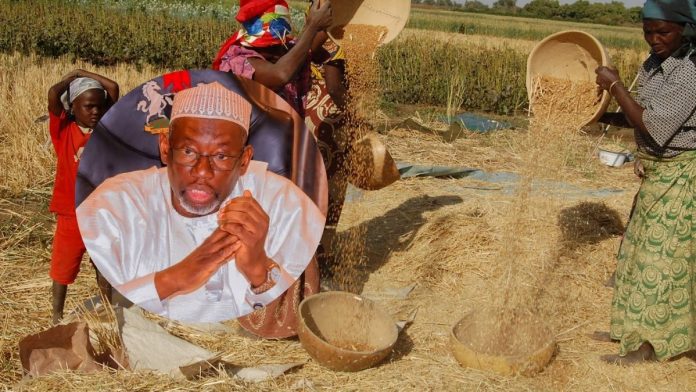News in brief:
-Â Jigawa State Governor Umar Namadi is optimistic about Nigeria achieving wheat self-sufficiency and becoming an exporter, citing federal agricultural policies.
– He outlined plans to utilise the state’s vast resources to make it a wheat exporter as part of a broader strategy for food security and surplus production.
Jigawa State Governor Umar Namadi has expressed optimism regarding Nigeria’s prospects for achieving wheat self-sufficiency and even exporting the grain. He attributed this confidence to the current federal government’s agricultural policies, particularly the National Wheat Development Programme.
Governor Namadi’s remarks came after a briefing with President Bola Ahmed Tinubu, during which he discussed various developmental matters in Jigawa. He expressed gratitude for the 40,000 hectares of land earmarked for the program in the state, highlighting the potential for large-scale wheat production.
Also, he emphasised President Tinubu’s unwavering support, assuring full backing to realise these ambitious goals. He pointed to the allocation of 40,000 hectares to Jigawa as a testament to this commitment.
The governor cited Jigawa’s vast resources as key to its success, including over 400,000 hectares of FADAMA land suitable for cultivation throughout the year. This fertile land offers immense potential for expanding wheat production beyond the current dry season program.
Additionally, when asked about the possibility of exporting wheat, Governor Namadi expressed confidence that Jigawa would eventually become a wheat exporter. He envisioned a cyclical approach, focusing on different crops to gradually achieve food security and surplus for export.
Historically, Nigeria has heavily relied on wheat imports to meet domestic demand. The cost of this dependence increased dramatically due to the global wheat price surge caused by the Russia-Ukraine war and the subsequent Black Sea grain deal collapse. Between October 2022 and September 2023, Nigeria spent a staggering â¦970 billion on wheat imports, a report finds.



